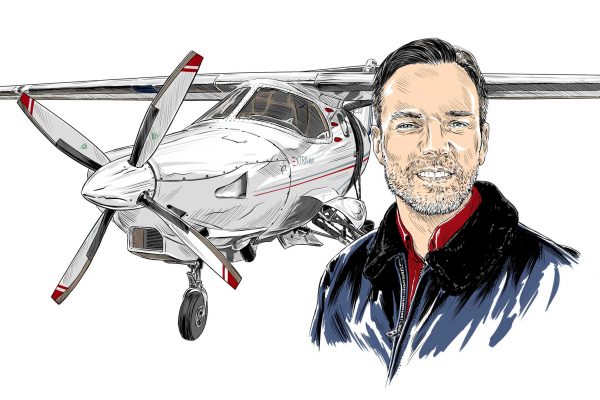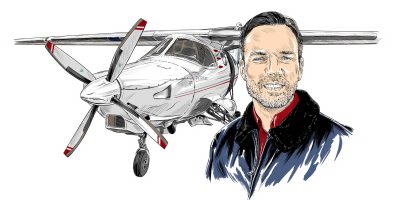As I write this towards the end of April, even a month ago I might have thought it unlikely that developments due to coronavirus would be a suitable topic for the Instant Expert column. But here we are. I hope by the time you read this, the prospect of some flying might be in the nearer future than it seems now.
Welcome news in April was the publication of two CAA exemptions that allow the extension of pilot ratings and medicals beyond their existing expiry dates, until 22 November. This extension can be performed after a briefing with a suitable instructor or examiner. ‘Lockdown’ has made most GA flying off limits, but the aim is to buy us a bit more time to get our revalidations and renewals in place so when the time comes we can take to the skies again.
Developments come week by week at the moment, but even if details have changed by the time you read this, the principles will likely remain the same. The two exemptions, ORS1385 and 1378 cover EASA and UK national licences respectively. The EASA exemption is based on an approach that has been agreed at European level and is issued under the powers to exempt from certain EASA regulations when there is an urgent operational need.
The exemptions appear quite long and complicated. The main reason being, is that they cover a wide range of qualifications and other validities. The good news is that it’s not necessary to understand every detail – it just helps to know the principles. In practice examiners should have sufficient knowledge to ensure the extension procedure is correctly conducted and recorded.
To be applicable, the rating or other validity must expire on or after 16 March this year but before 31 October. If you fall within those dates, an extension may be applied such that the new expiry date becomes 22 November. Note that if the rating has lapsed already you can still use the exemption, provided the original expiry date fell between those dates.
Taking the SEP rating as an example. It may be that you are currently short of the necessary hours to revalidate by experience – by moving the expiry date to 22 November, this could buy some time once restrictions are lifted to gain more hours, although bear in mind that shifting the expiry date to 22 November also shifts the 12 month period in which the normal requirements must have been accumulated. Alternatively, if revalidation is to be by proficiency check, extending might allow the opportunity to fly a bit before taking the check with an examiner. If you have met the SEP experience requirements already, you just need to get your revalidation by experience signed off in the normal way.
Buying time
For LAPL(A) and (H) holders, the exemption allows the ‘rolling validity’ period to be extended to 32 months and 20 months respectively. Again, this buys time to gain more hours. Bear in mind that as soon as the 22 November date passes, the normal periods apply again – for example for the LAPL(A), flights that took place between 32 and 24 months ago will no longer count.
The LAPL validity extension can be signed off by an appropriate instructor and recorded in the logbook. In the case of ratings attached to a PPL or higher, the briefing can be done by an instructor qualified for the rating, but the extension procedure can only be signed off by an examiner or in the case of the SEP rating, an instructor with EASA FCL.945 privileges (the privilege to sign off revalidation by experience) can also sign.
The CAA anticipate that the vast majority of these briefings will be carried out remotely. In terms of the briefing content, the exemption specifies it must be based on the Examiner Report form – which essentially means the skill test schedule for the relevant rating. In the case of the SEP rating this would be the normal proficiency check profile. The CAA have not specified the requirements in any further detail but expect to be asked questions around the practical manoeuvres that would normally be in the proficiency check, as well as covering some pre-flight topics such as flight planning or mass and balance.
For evidencing the extension, there is a form that the examiner can fill out (SRG1100F at the time of writing), which can be signed and then a copy carried at any time in which the extension is used. Having the certificate of revalidation page of the licence signed (for example by post) with the extension date is also an option but not a requirement. For national licences, affixing a statement in the logbook seems to be the preferred method.
The exemption also covers a range of other validities – notably medicals and theoretical knowledge exams. For medicals there is no extension procedure, provided you do not experience a reduction in medical fitness and the expiry falls within the relevant dates, it is considered extended until 22 November.
In these unprecedented times flying may not be at the forefront of many GA pilots’ minds, but if your rating or other applicable validity expires between 16 March and 31 October, tracking down an examiner and brushing up on the relevant knowledge could make life easier once we can take to the skies again.
More information:
www.caa.co.uk/covid19
www.caa.co.uk/CAP1913




